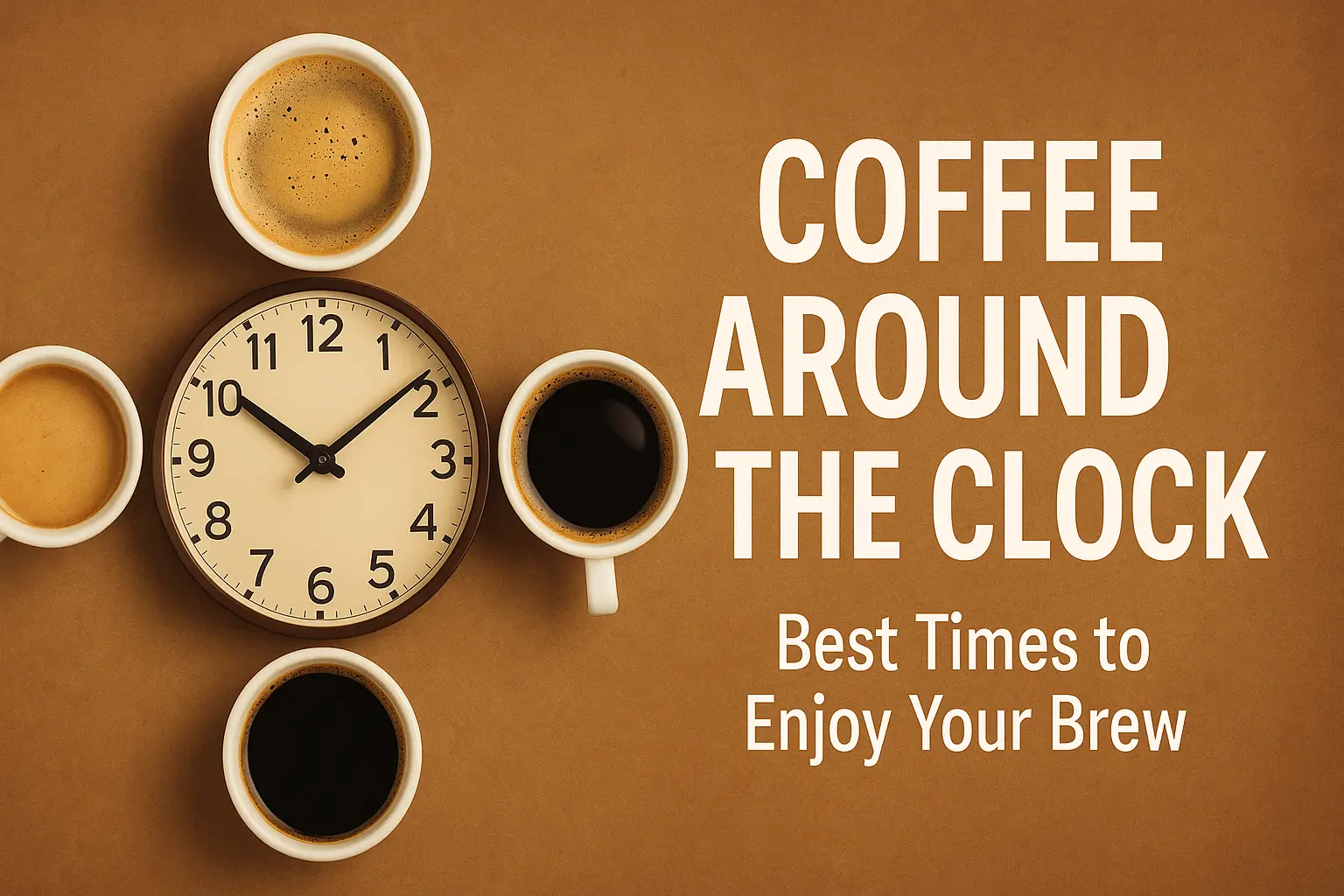Coffee is more than a morning ritual — it’s a companion throughout the day. But did you know that the time of day you drink coffee can affect not only your energy but also your focus, sleep, and even your health?
In this guide, we’ll explore the best times to drink coffee based on science and daily routines — and when to avoid it for maximum benefit.
Why Timing Matters
Caffeine affects the central nervous system, increasing alertness and temporarily blocking fatigue. But it also interacts with your body’s natural hormone cycles, especially cortisol, the hormone that helps regulate wakefulness.
Drinking coffee when your cortisol is already high can reduce caffeine’s effectiveness and even increase anxiety.
Morning: When to Start Your First Cup
6:00 a.m. – 8:00 a.m.
At this time, your body is naturally producing a high level of cortisol, so it’s best to wait.
Drinking coffee too early may:
- Increase jitters
- Lead to a quicker caffeine crash
- Build up tolerance faster
9:30 a.m. – 11:30 a.m.
This is the ideal window for your first coffee. Cortisol levels begin to drop, and caffeine will have a more noticeable effect.
✅ Best time for:
- Morning productivity
- Creative work
- Meetings and deep focus tasks
Midday Boost: Early Afternoon
1:00 p.m. – 3:00 p.m.
This is when energy dips are common — perfect for a second cup if needed. A mild caffeine boost can help combat the post-lunch slump.
✅ Great for:
- Light tasks
- Staying alert without overdoing it
⚠️ Tip: Avoid very strong or sugary drinks if you’re already feeling wired.
Afternoon Cutoff: When to Stop
After 3:00 p.m.
For most people, caffeine can stay in the system for 6–10 hours. Drinking coffee too late can:
- Disrupt your sleep
- Reduce sleep quality
- Make it harder to fall asleep, even if you feel tired
🛑 Avoid coffee after mid-afternoon if:
- You have trouble sleeping
- You’re caffeine-sensitive
- You’re drinking multiple cups per day
Instead, opt for:
- Decaf coffee
- Herbal tea
- Water with lemon or cucumber for refreshment
Coffee and Workouts
Pre-Workout (30–60 minutes before exercise)
Caffeine can enhance:
- Endurance
- Strength
- Reaction time
- Fat-burning during cardio
☕ Try an espresso or small cup of black coffee before the gym or a run.
Evening Coffee: Is It Ever Okay?
If you’re planning to stay up late — for a night shift, study session, or event — a small dose of caffeine in the evening may be helpful. However:
- Stick to low doses
- Choose low-acid or cold brew to reduce digestive discomfort
- Pair with water to stay hydrated
🌙 For casual evening sipping, decaf coffee is a great alternative. It lets you enjoy the flavor and warmth of coffee without disrupting sleep.
Coffee and Meal Timing
- Drinking coffee before meals can suppress appetite, but may irritate sensitive stomachs.
- Having coffee after a meal can aid digestion, especially espresso in European cultures.
- Avoid drinking coffee with iron-rich meals (like red meat or leafy greens), as it may inhibit iron absorption.
Summary: Best Times to Drink Coffee
| Time | Recommendation |
|---|---|
| 6:00 – 8:00 a.m. | Wait — cortisol is naturally high |
| 9:30 – 11:30 a.m. | ✅ Best time for first cup |
| 1:00 – 3:00 p.m. | ✅ Good for mild afternoon boost |
| After 3:00 p.m. | ⚠️ Avoid if sensitive to caffeine |
| Pre-workout | ✅ Can improve performance |
| Evening | ❌ Use caution — decaf is safer |
Final Thoughts: Make the Most of Your Coffee
Coffee can be a powerful ally for focus, energy, and pleasure — when used at the right times. Understanding your body’s rhythm and choosing strategic moments to enjoy your brew will help you avoid crashes, improve sleep, and get more from every cup.
So don’t just drink coffee out of habit — drink it with purpose. Your brain (and your body) will thank you.
